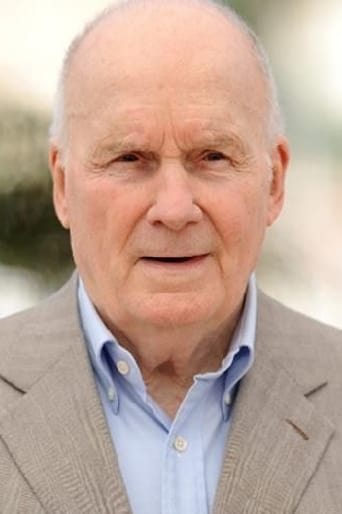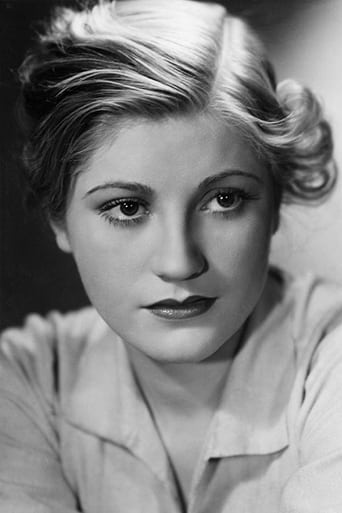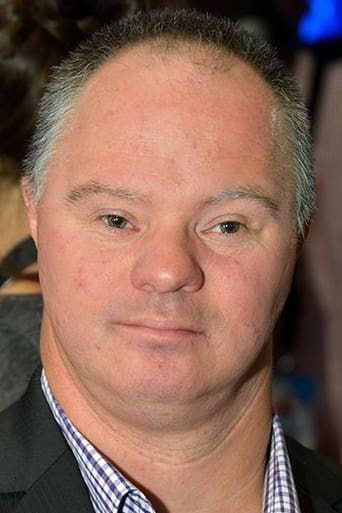Hottoceame
The Age of Commercialism
ShangLuda
Admirable film.
Huievest
Instead, you get a movie that's enjoyable enough, but leaves you feeling like it could have been much, much more.
Griff Lees
Very good movie overall, highly recommended. Most of the negative reviews don't have any merit and are all pollitically based. Give this movie a chance at least, and it might give you a different perspective.
yc955
The only gripe I have with this film is the ending? Does it really necessary to make the rich kid with the 'good life' to envy the less fortunate one's for his 'freedom'? To get the protagonist killed to prove a point? Maybe the writing here is more of self expression than depicting human condition in general? Loud volume doesn't make the music more significant. Perhaps something could have left unsaid to the audience's imagination...I always liked the French movies for there seemingly understated fashion over the dog barks of moral debate and preaching of the Anglo-American types - assuming the viewer is deaf and dumb. Well, the movie's ending is a bit surprise to me. Instead of letting the actors barking at each other, it chose to create a big bang with its twisted story line in the end. I certainly saw it coming after the middle point of the film. But still, I'd have no problem giving it 10 had it not been for the forced ending. I thought the biggest tragedy for people like Toto is that they never got anything right and nobody cares what they do or do not do. Therefore, to force Alfred to 'envy' Toto in the end and let Toto leave with a bang instead of a wimp is certainly gratifying to the audience, Hollywood style. But it feels very concocted and unnatural. Trying to force a tragedy into a comedy really is pointless. Because life really do sucks for folks like Toto.
cyclura-1
A most unusual cinematic treat. I happened on this film in the middle. I was so intrigued by it I scanned the TV guide for a month until I could see it from beginning to end. There are more than many comments one can make on his own life. In this film we can make our own judgment on the life of Thomas the Hero. We know from the outset that he feels he has been cheated from his birthright. Can he regain what has been taken from him? Or has he been unable to comprehend the quality of his own life? These issues are dealt with in four stories told almost simultaneously.The resolution is at once redeeming and thought-provoking.
Dennis Littrell
Thomas is a bitter old man who feels he has been cheated out of the life that was rightly his because he and another boy were switched at birth during a fire at the hospital. Alfred, the other boy, lives a life of privilege and becomes rich. Thomas is jealous. But in another sense Thomas needs to believe that he was switched because he falls in love with his sister Alice. If he really was switched, they are not related.This is just one of the ironic witticisms spun out by Jaco van Dormael, who wrote and directed this striking and totally original bit of life triumphant. Veteran French actor Michel Bouquet plays Thomas as an old man, sneaking cigarettes in the old folks home, reliving his memories, plotting his revenge. Jo De Backer plays Thomas as a slightly nerdish young man, consumed by the loss of his beloved sister in a fire when she was about eleven or twelve. One day by accident he spots a woman who reminds him of his sister. He follows her, they fall in love, and it turns out she is married to Alfred! Thomas Godet plays the little boy Thomas with charm and a touching vulnerability. He is picked on and bullied by Alfred and his friends who taunt him with, "van Chickensoup!" (I wonder if the French Academie approves of this vulgar Anglais.) Sandrine Blancke plays Thomas's cute and impish older sister. Mireille Perrier plays Evelyne, who is the woman who reminds Thomas of his sister.In a sense this is a romantic comedy, but be warned that in the French cinema a hint of incest is seldom looked on as shocking, rather as something almost akin to nostalgia. And certainly every woman should have a lover and every man a mistress. In another sense this is an art film that plays with time, using both flashbacks and flash forwards to present a story filled with spooky coincidences, punctuated with fantasy and a kind of naturalistic glorification of life epitomized in the catchy tune, "Boom!" that weaves its way in and out of the story, a tune you might have trouble getting out of your head, so be forewarned. ("Boom! When your heart goes boom! It's love, love, love!" written and performed by Charles Trenet.) There is also as aspect of sentimentality, especially in the resolution, that provides a sweet contrast with the naturalistic pathos. When the words that Alice spoke as a child is reprised by Evelyne (although she could not have known what Alice had said) we are delighted, and Thomas is a little rattled.. ("Do you like my hands?" she asks, holding them up. "Which hand do you prefer?")The bitter old man learns that he really had the better of it all along (and so he does somewhat the opposite of what he had intended) and indeed we in the audience realize that how we might feel about life, looking back on it, might really just depend on how we choose to feel about it. Dormael's message seems to be that love makes life worth living. We are left with the sense that there is a time for love, and that time passes, and we have to accept that and celebrate the memory.Best scene: Ten-year-old Thomas sees his perhaps 11-year-old sister rising out of the bath tub. (We see only his widening eyes; this is a discreet movie.) He says, "I...didn't know you had breasts." She replies (deadpanning the pride of a pre-adolescence girl), "I thought you'd read about them in the newspapers."(Note: Over 500 of my movie reviews are now available in my book "Cut to the Chaise Lounge or I Can't Believe I Swallowed the Remote!" Get it at Amazon!)
mestos
Toto the Hero is one of those rare films that improves with each viewing (and you will want to watch it again and again) there are enough levels going on to satisfy the hardened movie deconstructionist but at the same time the story-telling is engagingly simple and seemingly naive. At the surface level a narrative of lost love, mistaken identity, family tragedy, life/death and tulips. Dig deeper and there is a complex reflexive subtext about language and subject identity that encompasses philosophy, psychoanalysis and the role of the media itself. Joyce, Levi Strauss, Freud and Lacan are cited alongside countless references to cinema and television. Watch the opening of Billy Wilder's Sunset Boulevard or read the first page of Joyce's Portrait of the Artist as a Young Man after Toto and you may catch my drift. A truly superb piece of cinema that skillfully manages to avoid the post-modern posturing that condemns many of Van Dormael's contemporaries.




